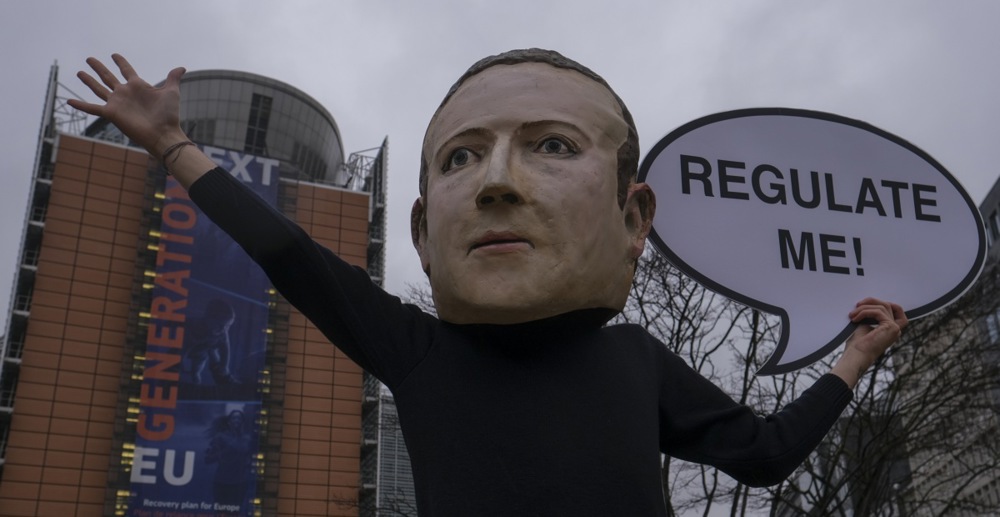Germany’s Christian Democrats are not only “dead at heart”, but “brain dead” as well.
This was the core message of Hans-Georg Maaßen as he announced his resignation from the party on January 26.
According to Maaßen, Germany’s Christian Democratic Union (CDU) had for a long time served nobly as the country’s primary middle-class party, standing for the good, Conservative values that most voters could get behind.
All this changed when Angela Merkel took over the group. For Maaßen, the former German Chancellor represented the CDU’s abandonment of the values that it held dear in favour of pursuing a left-wing platform, similar to that of the Greens or the Social Democratic Party (SPD).
This, in turn, only allowed the populist Alternative für Deutschland (AfD) to gain power, with the group having now become the second-most popular political group in all of Germany.
For Maaßen, there is now only one way to “right the wrongs” of the post-Merkel CDU: Conservatives must build a new party.
Germany’s Christian Democrats party is “brain dead” and has been "straying" from its core values for some time, the leader of a new splinter group @HGMaassen has said after resigning from the party. https://t.co/szUHEf9fV3
— Brussels Signal (@brusselssignal) January 26, 2024
The WerteUnion (Values Union) started life not as a party but as a pressure group.
Set up in 2017 amid growing concerns about Merkel’s leadership of the CDU, the Values Union aimed to bring the party back to Conservatism.
The group has been compared to the American Tea Party movement of the early Barack Obama era, serving as the base of a Conservative right-wing backlash against an increasingly left-wing establishment.
All started well for the group, with one minister at the time even sending an official greeting to the first gathering of the group in Schwetzingen, near the city of Heidelberg.
Such well-wishing did not last long. Things went south in 2018, the CDU voted to not recognise the group in the hopes of preventing the party from splintering into different factions.
The Values Union’s perceived lack of hostility to the growing AfD also worked to sour relations. By 2023, many CDU politicians saw membership of the Values Union as being incompatible with membership of their party, with efforts arising to boot Maaßen out of the party.
These tensions eventually came to a head on January 21, 2024. At a general meeting in Erfurt, Thuringia, members of the Values Union voted in favour of the creation of a new party under the group’s branding. With this, efforts to shift the position of the CDU officially ended.
“While the [Christian Democrats] are moving further and further away from their roots in terms of content and program, the Values Union will compete for the sovereign with a new offer in the party landscape,” Maaßen told the conference.
He added that the group, at this point, had now completely “split off” from the CDU and its sister party, the Christian Social Union (CSU), which operates in Bavaria.
He went on to say that the Values Union would serve as a “strong, creative voice” pushing for Conservative positions in terms of “social, family, economic, legal and migration” policy.
A splintering of the anti-establishment vote in Germany among three or four parties could prove to be the CDU's best hope for a return to power, writes Paddy Belton. https://t.co/11LQ7tAQh4
— Brussels Signal (@brusselssignal) January 26, 2024
But what exactly will this new party look like? What will it stand for? In short: we do not know yet.
While the group has said that it wants to emulate the “1.0” version of the Christian Democrats, Maaßen has so far avoided announcing any key points of policy.
Instead, his party’s website reads that such concrete talking points will only be unveiled in February, after it is officially founded in the eyes of German law.
It is also unclear what its exact electoral aims are. Maaßen has been clear that the group intends to contest the three state-level elections due to take place in the former territories of Communist East Germany in September – a stronghold of the AfD – although again, the party’s policy platform is unclear.
Officials from the group have also been cagey on the issue of June’s European Elections, although a drop-down hidden in the party’s ‘Frequently Asked Questions’ section does appear to confirm it will not directly contest the vote.
“Will the Values Union run for the European elections?” a question on the page reads, followed by the answer: “No, this can no longer be achieved in terms of time as the registration deadlines have expired before the company is founded.”
The party also appears to be targeting voters who are reluctantly thinking of voting for the AfD. The group explicitly condemns all forms of “ethno-nationalism” while also saying it would be open to working with parties across the political spectrum, including the AfD, as long as they are not engaged in “political extremist efforts of unconstitutional or anti-constitutional character”.
WATCH: Professor @WernerPatzelt says it would be a "big surprise" if the @AfD failed to make huge gains in the upcoming EU elections as it gives a voice to those disillusioned with Germany's political class.
Watch the full interview here: https://t.co/TilEsTOEhk @MCC_Brussels pic.twitter.com/aEjrscvQUJ
— Brussels Signal (@brusselssignal) January 25, 2024
What are the group’s chances of electoral success, though? The general consensus: Not great.
An overwhelming number of pundits agree that the party is aiming to attract voters who find themselves somewhere in between the AfD and the current Christian Democrats in terms of ideology.
“The Values Union as a party will probably be located where it has already been as an association: somewhere between the CDU and AfD,” political scientist Uwe Jun remarked, describing it as being “nationally Conservative, but not right-wing radical”.
Most doubt that there is much of a market for such a group.
Deutschlandfunk radio pundit Henry Bernhard notes that several other newly founded parties have tried to thread the needle between the CDU and AfD, with their impact so small that very few people even remember them nowadays.
“Like the quickly failed ‘Blue Party’ of Frauke Petry and the ‘Alliance for Progress and Awakening’ Bernd Lucke, it wants to play the field between the AfD and the CDU,” he wrote.
Academy for Political Education director Ursula Münch seems to share Bernhard’s view, expressing scepticism that the group will earn enough support to enter parliament anywhere.
“I don’t think the Values Union around Maaßen has much of a chance at the moment,” she said, expressing confidence the group would be unable to “overcome the 5 per cent hurdle” needed to enter most legislatures.
“In my opinion, the gap between AfD on the extreme right and a Conservative CDU is not that big,” she added.
She went on to note that the Free Voters, another right-wing populist party, was already “filling the gap” between the two groups.
East Germany seems to threaten resurrection. Not as a Communist country or an independent state, but as a genuinely unique sociopolitical entity in Europe, the politics of which are totally unlike anywhere else in the Western world, writes @Peter_Caddle. https://t.co/dNLnpG594t
— Brussels Signal (@brusselssignal) January 25, 2024
Such predictions remain mere speculation. While Maaßen has made statements in favour of cutting down on illegal migration and restarting nuclear in Germany, the group has yet to announce its formal platform.
No public polling appears to have been made available regarding the new party, either, with such data likely to only be made available after it is formally constituted in February.
It nevertheless appears to represent a growing shift in German politics. The second major party to be founded in 2024 after the left-wing anti-woke Sahra Wagenknecht Alliance (BSW), the Values Union appears to represent a growing level of resistance to mainstream German politics.
Maaßen’s willingness to work with the AfD, though, represents the latest bit of evidence that the cordon sanitaire against the populist group is failing.
While CDU leaders remain insistent that its policy of not dealing with the party remains in place, we have seen them – along with some of Germany’s more left-wing groups – work with it more and more at the local, regional and European levels.
Ultimately, the Values Union’s very existence appears to indicate a growing market for right-wing politics in Germany.
With the AfD seeing its polling rise as high as 23 per cent in recent weeks, the country’s traffic-light Government is struggling more and more to keep a lid on the issue.
Attempts to ban or defund the party also appear unlikely to stem the tide, considering the increasing number of new parties looking to get in on the populist game.
As always, we will know more in June.
Backing for European Commission President Ursula von der Leyen within the European Parliament is now on a knife-edge with new research estimating that three of the parties that support her will suffer significant losses in June's parliamentary elections. https://t.co/w5FgBveMSJ
— Brussels Signal (@brusselssignal) January 24, 2024





